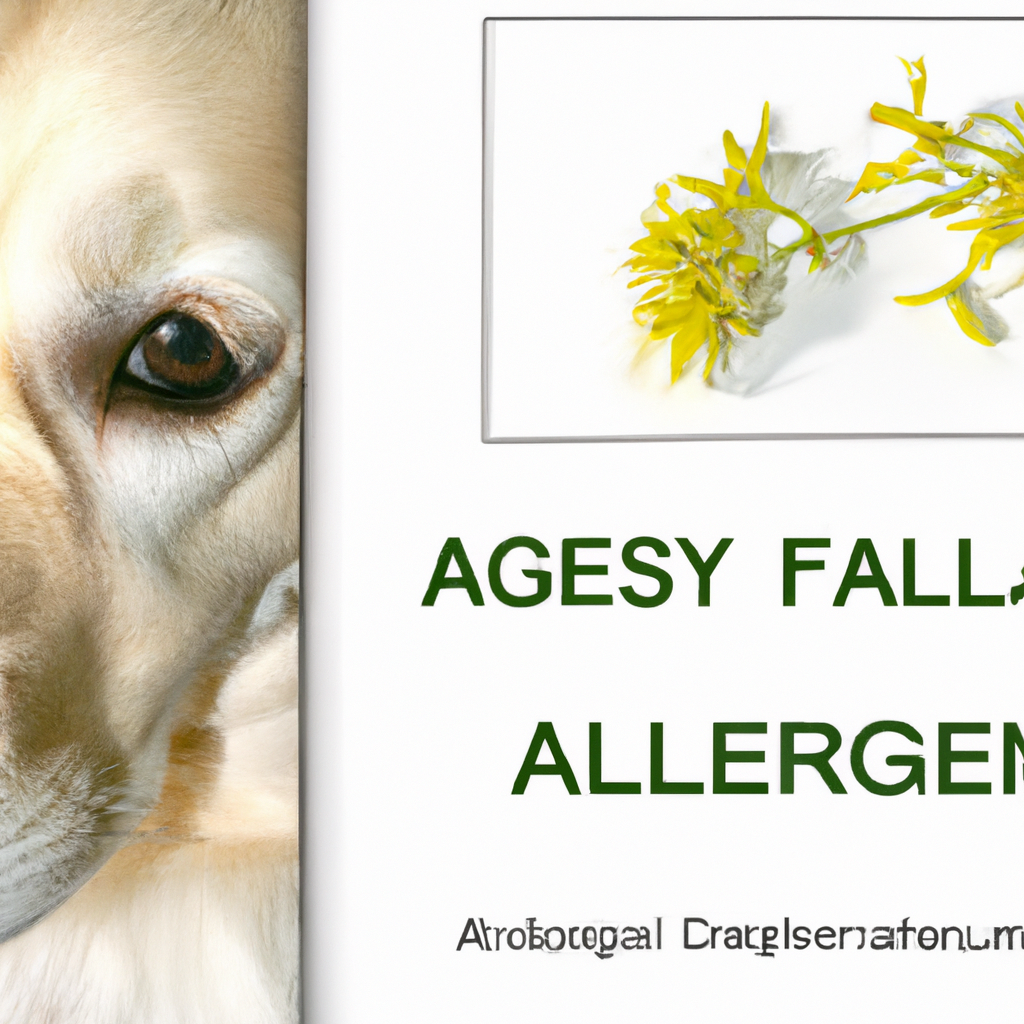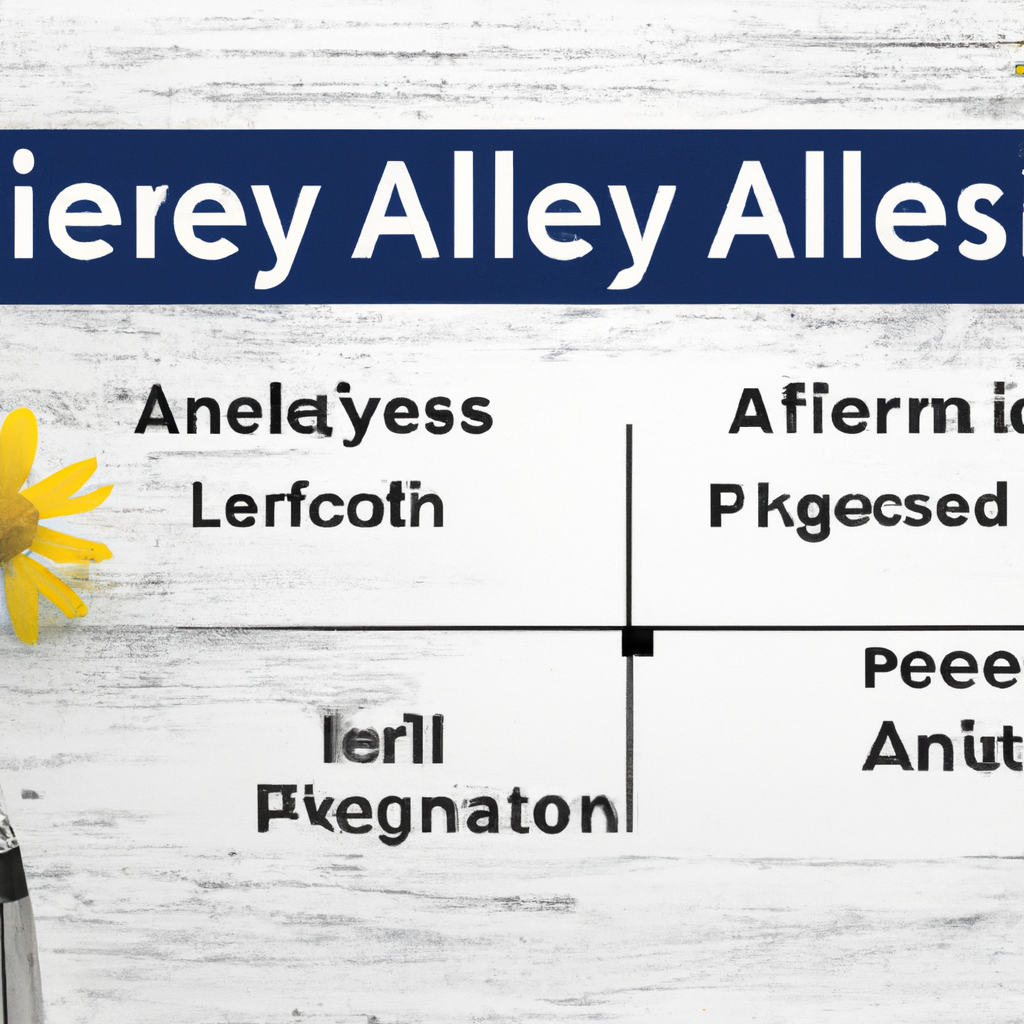Understanding and Managing Seasonal Allergies in Dogs
Title: Sniffles and Sneezes: Unraveling the Canine Seasonal Allergy Mystery Excerpt: As spring breathes life into the world, some

There is a hidden symphony in the air, orchestrated by the vibrant blooms and gentle rustle of leaves. But as the world awakens from its wintery slumber, so too do the restless allergies that plague our beloved furry companions. As spring’s delicate beauty unfolds, the days of incessant sneezing, itchy skin, and watery eyes begin anew for our dogs. It is a battle against nature, an annual dance with discomfort, and yet understanding and managing seasonal allergies in dogs is a task we must undertake. So, lean in a little closer and let us embark on a journey into the enigmatic world of our pets’ allergies, armed with knowledge and compassion, as we unlock the secrets of this petal-laden puzzle together.
Understanding the Causes and Symptoms of Seasonal Allergies in Dogs
Seasonal allergies can affect not only humans, but our furry friends as well. Just like humans, dogs can also experience uncomfortable and bothersome symptoms during certain times of the year. As responsible pet owners, it’s crucial to understand the causes and symptoms of these allergies to provide our dogs with the necessary care and relief.
One of the most common causes of seasonal allergies in dogs is pollen. Similar to humans, dogs can be allergic to different types of pollen including tree, grass, and weed pollen. When these allergens come into contact with a dog’s skin, they can trigger an allergic reaction. Other common causes include mold and certain types of dust mites. It’s important to keep in mind that each dog is unique, and their allergic reactions may vary.
Symptoms of seasonal allergies in dogs may include:
- Excessive itching and scratching, often leading to red and irritated skin
- Watery eyes and constant eye rubbing
- Sneezing and coughing
- Excessive shedding or hair loss
- Runny nose
- Ear infections, characterized by redness, swelling, and a foul odor
If you notice any of these symptoms, it’s important to consult with your veterinarian to determine the best course of action. They may recommend allergy testing to identify the specific allergens causing the reaction. Once the allergens are identified, your veterinarian may prescribe medications or suggest lifestyle changes to manage your dog’s allergies and provide them with the relief they need.

Promoting Allergy Awareness: Identifying Common Triggers in Your Dog’s Environment
Allergies can be a real challenge for our furry friends. Just like humans, dogs can suffer from allergies too, and it’s important for us as responsible pet owners to be aware of the common triggers in their environment. By identifying these triggers, we can take steps to minimize their exposure and ensure our dogs lead a healthy and happy life. Here are some tips to help you recognize the common culprits:
- Pollen: Keep an eye out for excessive sneezing, watery eyes, or itching. Identifying the particular types of pollen that affect your dog can help you adjust outdoor activities during peak seasons.
- Dust Mites: Regularly clean your dog’s bedding, vacuum their favorite resting spots, and opt for hard flooring instead of carpeting. This will help reduce the presence of dust mites, which are a common trigger for allergies.
- Mold: Be mindful of areas where moisture often accumulates, such as basements or bathrooms. Keep these spaces well-ventilated and regularly check for any signs of mold growth to protect your dog from potential respiratory distress.
Remember, each dog is unique, and their allergies may vary. It’s crucial to closely monitor their reactions and consult with a veterinarian if any concerns arise. By proactively identifying and addressing the common triggers in your dog’s environment, you can provide them with the best quality of life possible.

Holistic Approaches and Conventional Treatments for Dog Allergies
When it comes to treating dog allergies, there are various holistic approaches and conventional treatments available. These options not only aim to alleviate the symptoms but also target the underlying causes. By combining the best of both worlds, dog owners can provide their furry friends with comprehensive care and a better quality of life.
Here are some holistic approaches and conventional treatments that can effectively manage dog allergies:
- Elimination Diet: This approach involves identifying and removing potential allergens from the dog’s diet, such as common food allergens like wheat, soy, or certain protein sources. It helps in pinpointing the specific ingredient causing allergic reactions and finding suitable alternatives.
- Herbal Remedies: Certain herbs and plant extracts like chamomile, nettle, and licorice root possess natural anti-inflammatory and soothing properties. These can be incorporated into your dog’s diet or applied topically to help reduce itching and inflammation caused by allergies.
- Acupuncture and Acupressure: These ancient Chinese therapies can stimulate specific points in the body, promoting energy flow and balancing the immune system. By targeting meridians related to allergies, acupuncture and acupressure may provide relief from allergy symptoms.
While these holistic approaches are beneficial, there are conventional treatments available as well:
- Antihistamines: These medications block the effects of histamine, a chemical released during an allergic reaction, helping to relieve sneezing, itching, and other allergy symptoms. It is essential to consult a vet to determine the right dosage and medication suitable for your dog.
- Immunotherapy: Also known as allergy shots, this treatment involves exposing the dog to small amounts of allergens to desensitize their immune system over time. It can provide long-term relief and reduce the severity of allergic reactions.
- Corticosteroids: In severe cases, corticosteroids may be prescribed to manage inflammation and suppress the immune response. These medications should be used cautiously as long-term use can lead to side effects, so regular check-ups with a vet are crucial.
By considering a combination of holistic approaches and conventional treatments, dog owners can find effective solutions to manage their furry companions’ allergies and offer them a more comfortable and enjoyable life.

Managing Your Dog’s Allergies: Lifestyle Adjustments and Expert Recommendations
When it comes to keeping your beloved furry friend happy and healthy, managing their allergies is crucial. Allergies can cause discomfort, itchiness, and even serious health issues for dogs. Fortunately, there are many lifestyle adjustments and expert recommendations that can help you alleviate their symptoms and ensure a better quality of life for your canine companion.
To address your dog’s allergies effectively, consider the following lifestyle adjustments:
- Regular grooming: Maintaining a proper grooming routine can help minimize allergens that cling to your dog’s coat, reducing their exposure. Regular brushing and bathing can remove pollen, dander, and other environmental irritants, providing relief.
- Environment modifications: Creating a allergen-free space for your dog inside your home is essential. Use hypoallergenic bedding, vacuum frequently, and keep windows closed during high-pollen periods. Also, consider purchasing an air purifier to help remove airborne allergens.
- Quality diet: A well-balanced, high-quality diet can have a positive impact on your dog’s immune system, making them more resistant to allergies. Consult with your veterinarian to determine the best diet for your dog’s specific allergies.
For expert recommendations, seek the advice of a veterinary professional specializing in pet allergies. They can perform specific tests to identify your dog’s allergens and provide tailored treatment options. These may include:
- Allergy shots: Immunotherapy is a common treatment that involves injecting small amounts of allergens into your dog’s system over time. This helps build up their tolerance, reducing the severity of allergic reactions.
- Medications: Veterinarians may prescribe antihistamines, corticosteroids, or other medications to alleviate your dog’s allergy symptoms. However, it’s essential to follow your vet’s instructions carefully and monitor your pup for any side effects.
- Nutritional supplements: In some cases, your vet may suggest specific supplements to help boost your dog’s immune system and overall well-being.
Remember, each dog is unique, and what works for one may not work for another. Finding the right combination of lifestyle adjustments and expert recommendations may take time and patience, but with dedication, you can help your furry friend lead a happier, itch-free life.
In Conclusion
As we bid adieu to this intricate exploration of seasonal allergies in our beloved furry companions, we hope you found solace within these words, a gentle echoing reassurance that you are not alone. Our quest to understand and manage the perplexities of nature’s whims upon our four-legged friends has led us through meadows of information and forests of knowledge.
With each gust of pollen-laden breeze, we have learned that the riddles of seasonal allergies can be unraveled, day by day, as we dance in sync with the seasons. Armed with newfound wisdom, we can shield our canine companions from the burdensome grip of sneezes, itchy eyes, and scratching paws.
Throughout our journey, we have discovered the importance of vigilance and early detection, as prevention is the best armor against the influx of seasonal foes. Understanding the delicate balance between the environment and our precious dogs has enabled us to forge a pathway to harmonious coexistence, nurturing a bond that lingers through the blooming beauty of spring and beyond.
But let us not forget the invaluable role of underpawed heroes in this saga─veterinarians, scientists, and researchers who tirelessly delve into the secrets of nature to devise innovative solutions for our furry friends. Their unwavering dedication fills us with gratitude, as we stand by, ready to have the backs of our canine companions, protecting them from the relentless onslaught of allergies.
As we bid adieu to our journey, may this newfound understanding provide comfort and guidance, not solely in the realm of petals and pollens but beyond. For in comprehending the intricacies of our dogs’ allergies, we recognize that compassion and perseverance pave the way to a life brimming with joy and vitality, guided by an unwavering commitment to their well-being.
So, dear reader, as you turn the final page of this chapter, let us venture forth, armed with the tools of knowledge, empathy, and an unwavering spirit. Together, we shall forge a future where our four-legged companions roam freely, their tails wagging, unburdened by the chains of seasonal allergies. Let the scents of each season infuse our hearts as we revel in the marvels of this ever-changing world.
For, dear reader, this is not just an end but a new beginning─a chapter that will be written on every breath of wind and captured in the exuberant leaps and bounds of our resplendent canines.






